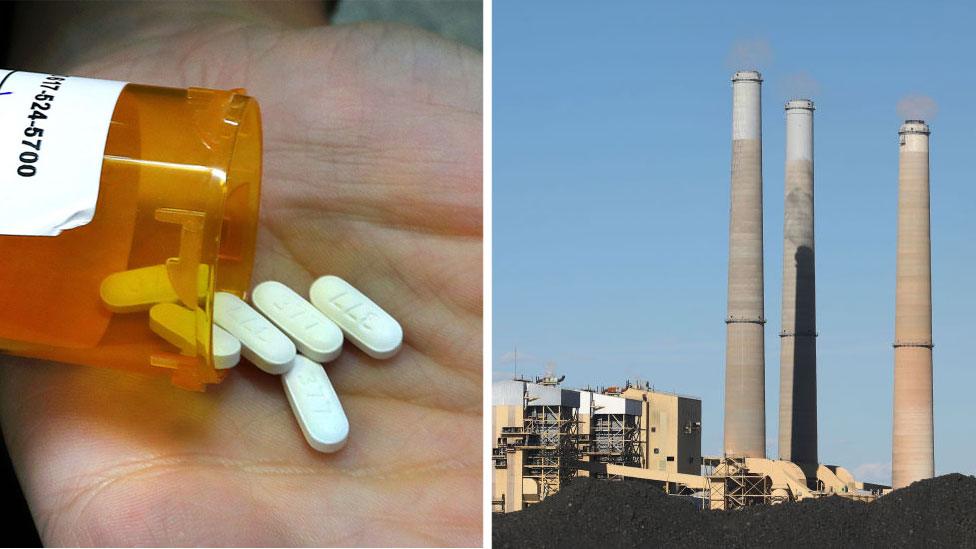US election primaries: Key takeaways for Biden and Sanders
- Published
Biden calls for unity with Sanders: "Together we'll beat Donald Trump."
Call it Mini Super Tuesday, or Super Tuesday: The Sequel. No matter the name, a week after Joe Biden surged into the front-runner position, he consolidated his lead. The bottom line is the race now appears to be firmly in his control.
Six states held primary contests for the Democratic nomination, with the former vice-president winning Mississippi, Missouri and Michigan.
Results from Washington, Idaho and North Dakota are still to come in, and Bernie Sanders will hope to do better there.
But the Vermont senator has fallen further behind in the marathon race to decide who takes on Donald Trump in November.
Here are the key takeaways from the night.
The beginning of the end?
Four years ago, Michigan gave Bernie Sanders a surprise win - albeit a narrow, 49-48 one - breathing new life into a campaign that was struggling after Hillary Clinton dominated Super Tuesday.
This time around, the Midwestern state could mark the beginning of the end for his campaign.
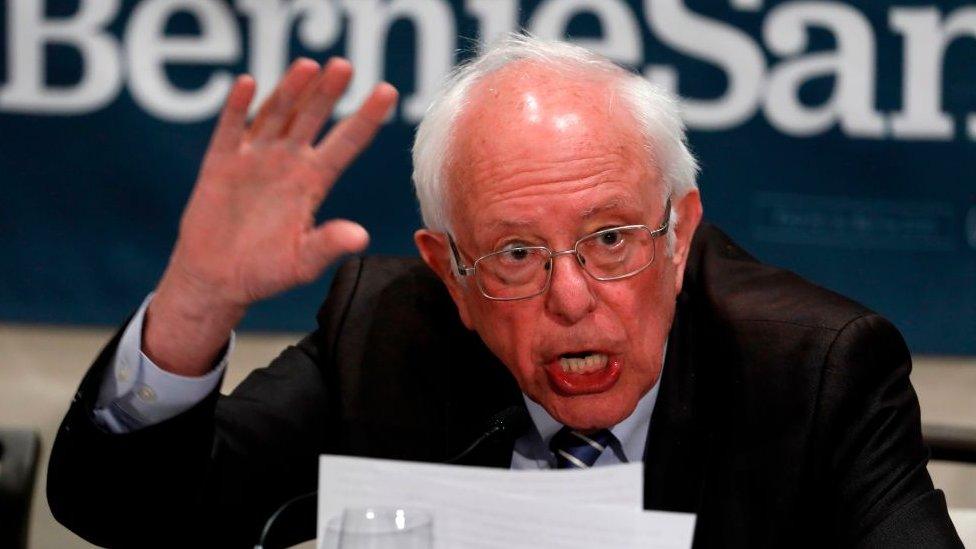
The difference, according to exit polls, were white voters, union voters and college graduates. Sanders won all three groups in 2016. On Tuesday night, Biden put them in his column. He carried college graduates 51-44, whites 51-45 and union members - 30% of the primary electorate - 54-42.
Add that to Biden's already strong performance among black voters, late-deciders and those who are looking for someone who can beat Donald Trump, and it's the recipe for a comfortable win for the vice-president.
The ease of the result will raise new questions about whether the 2016 Michigan primary was a reflection more of Clinton's weakness rather than Sanders's strength. At the very least, it's evidence that rather than improving on his 2016 performance, the Vermont senator is falling short.
And if he's falling short in Michigan, his path to the Democratic nomination is narrowing fast.
On Tuesday night, for the first time this primary season, Sanders chose not to speak to his supporters after the polls closed. His silence, however, spoke for itself.
Biden curses Michigan voter who said he's taking Americans' guns.

Biden wins the South
Mississippi was the first state to be called for Biden on Tuesday, and it was only the latest example of the strengths of his campaign - and another reason why the former vice-president appears to be in the driver's seat as the primary season unfolds.
As in South Carolina, the state that started Biden's political revival, more than 60% of the Mississippi electorate on primary night was black according to exit polls. And, as in South Carolina, the former vice-president dominated that demographic, to the tune of 86-11. The common refrain that a Democrat can't win the nomination without the support of black voters, somewhat in doubt after Sanders' dominating win in the Nevada Caucuses, now seems to once again be an ironclad rule.
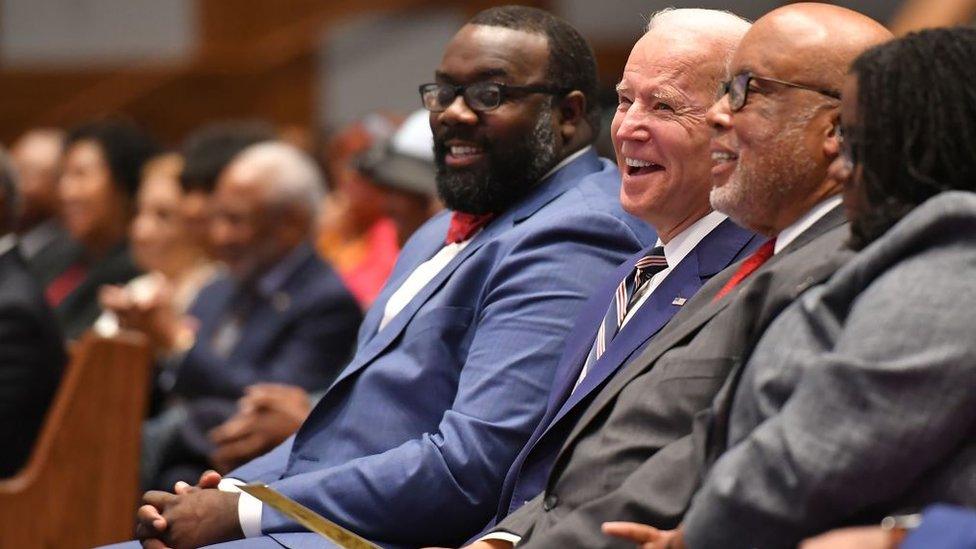
Joe Biden attends Sunday service at the New Hope Baptist Church in Jackson, Mississippi
The Mississippi result is also important because of what it means for the delegate calculations that will determine the nomination. Biden isn't just winning the state, he's dominating it. He's going to win the lion's share of the state's 36 delegates to the national convention, further extending his delegate lead. Given that delegates are awarded based proportionally, to catch up Sanders would have to start winning in some states by similarly large margins.
Barring some sort of drastic change in the race, that seems unlikely in the extreme. With every state Sanders loses, he falls farther behind - and the more improbable his comeback would be.

Bernie's youth vote
Once again, Bernie Sanders performed best with the youth vote, ages 17 to 29, according to exit polls. He carried it 82-15 in Michigan and 76-19 in Missouri, and only lost it by 4% in Mississippi, despite being routed in the state.
The problem for the Vermont senator, however, was that the age group averaged only 12.5% of the electorate in those three states - not nearly enough to save the day for Sanders. The epitaph for his campaign may be that it was premised, in part, on the passion of new young voters who simply did not show up in sufficient numbers at the polling booths.
While this may be good news in the short term for Biden, it is a flashing warning sign for the general election if he is the nominee. Young voters were a key part of the coalition that delivered the White House to Barack Obama in 2008, as he won them by a record 34% over John McCain. If the former vice-president does not find some way to improve his standing with this age demographic, he may suffer the same fate as Hillary Clinton, who only won the youth vote by 18%.
On Tuesday night, Biden made his pitch to Sanders' voters, perhaps with the autumn campaign in mind.
"I want to thank Bernie Sanders and his supporters for their tireless energy and their passion," he said. "We share a common goal, and together we'll defeat Donald Trump."
Of all those in the Sanders camp, the most tireless and passionate were his youngest fans. Perhaps this is the start of Biden's attempt to court their vote.
Biden will have to win over young voters like Alexis and Amira.
- Published3 February 2020
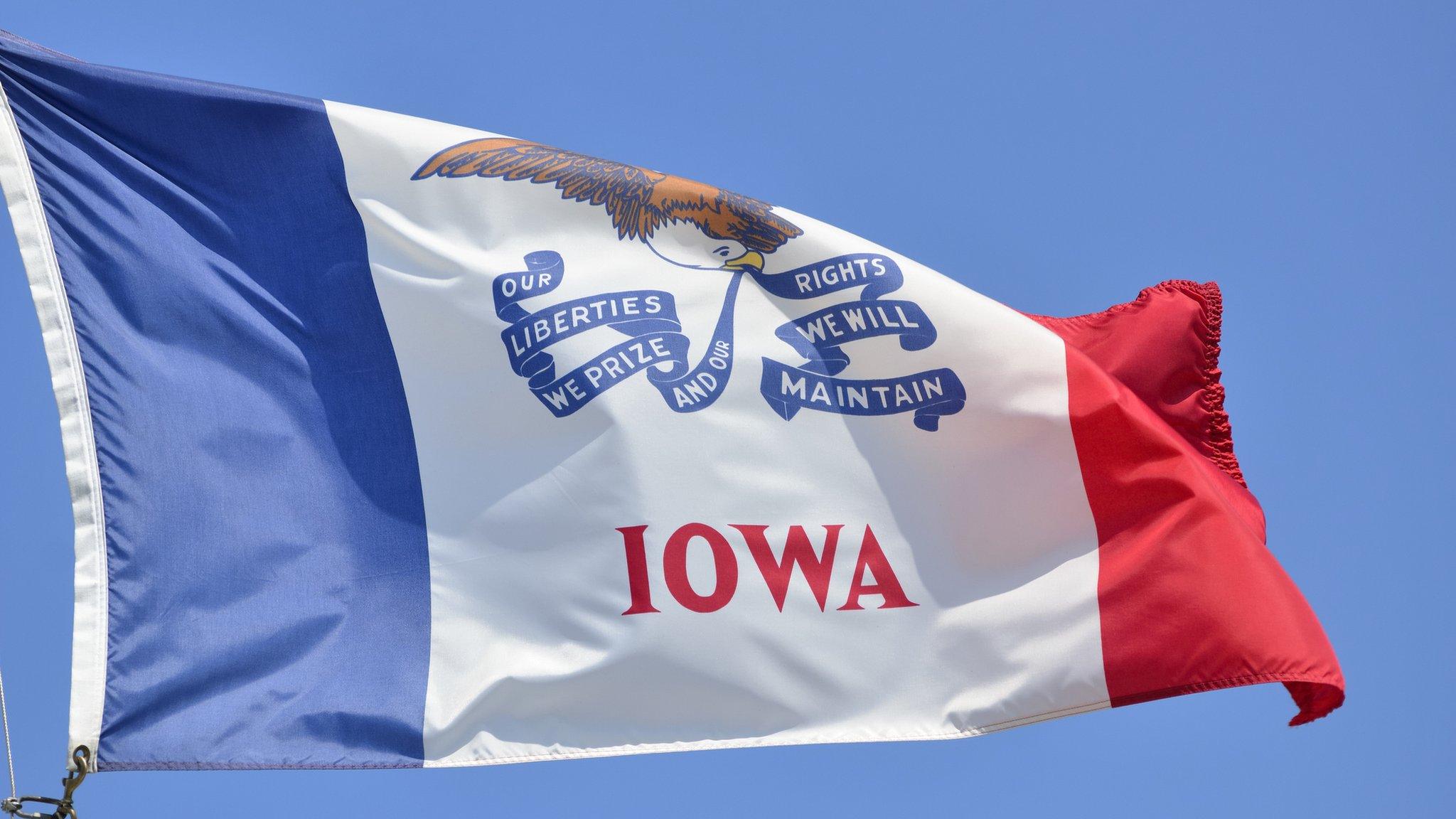
- Published5 March 2020
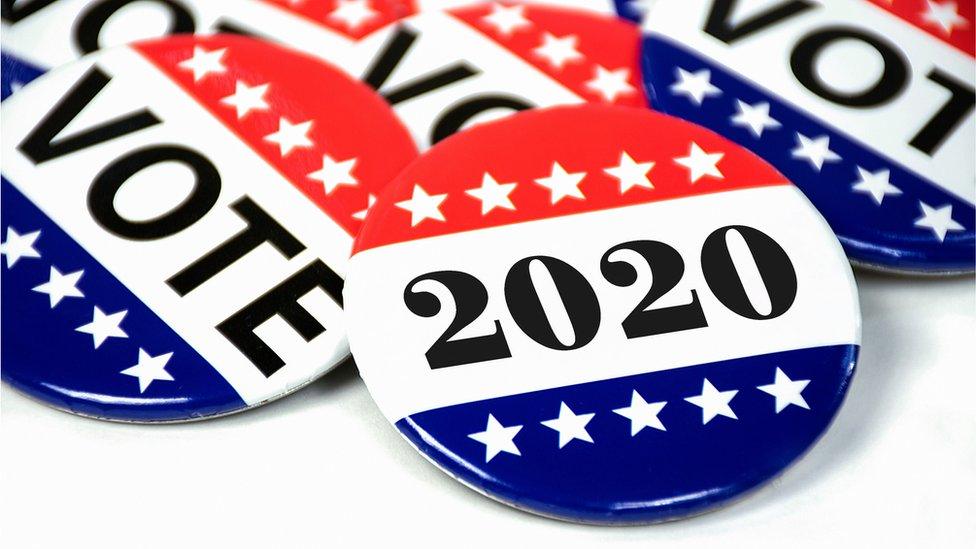
- Published19 May 2020
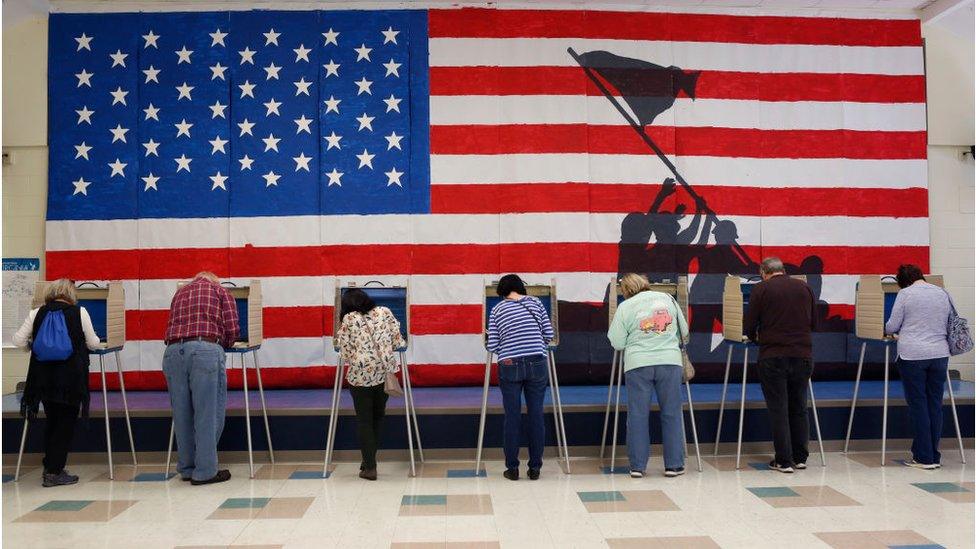
- Published9 December 2019
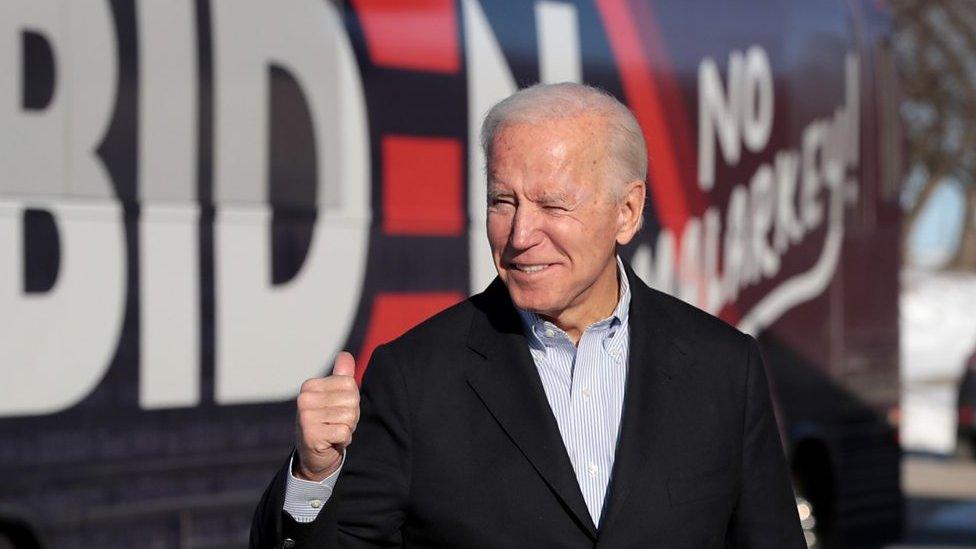
- Published2 March 2020
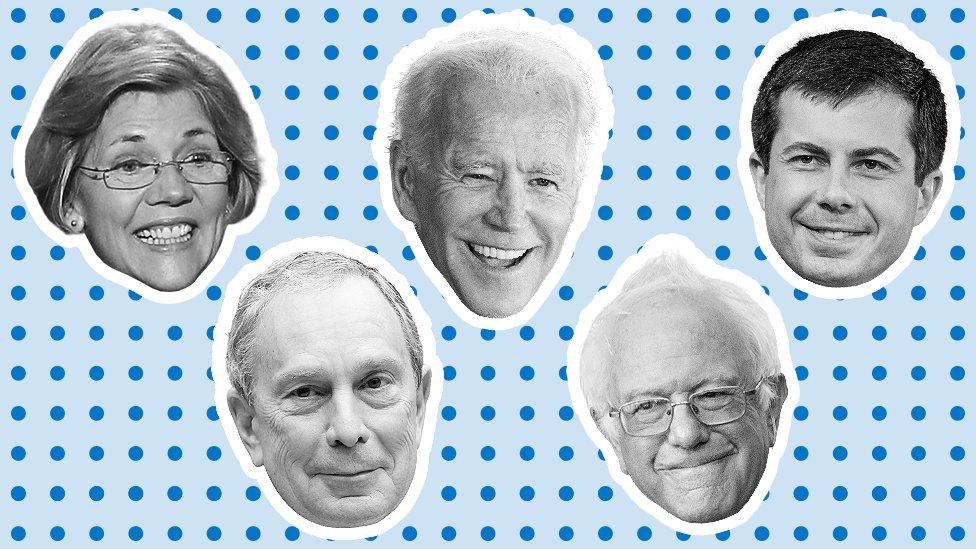
- Published17 January 2020
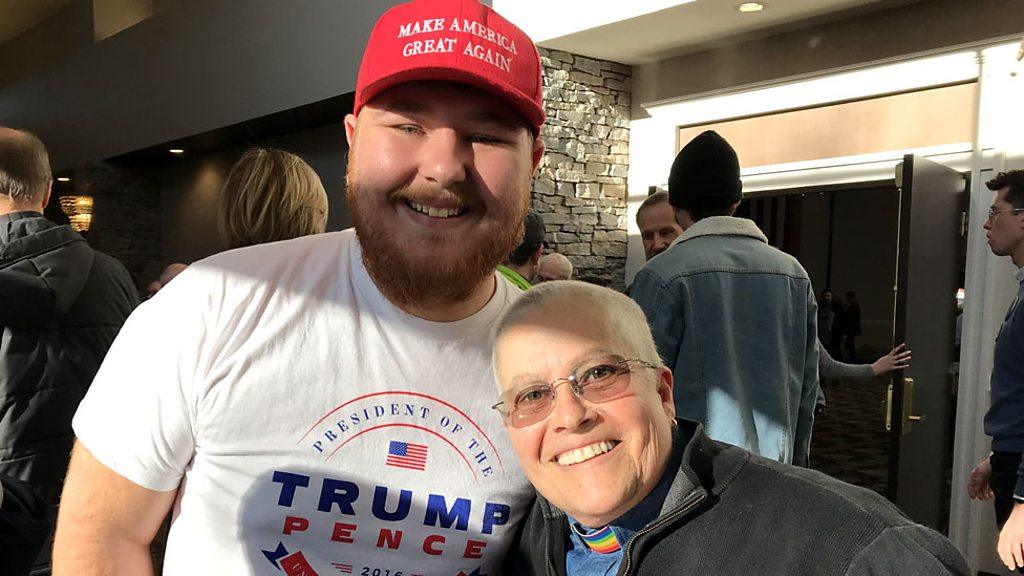
- Published4 February 2020
